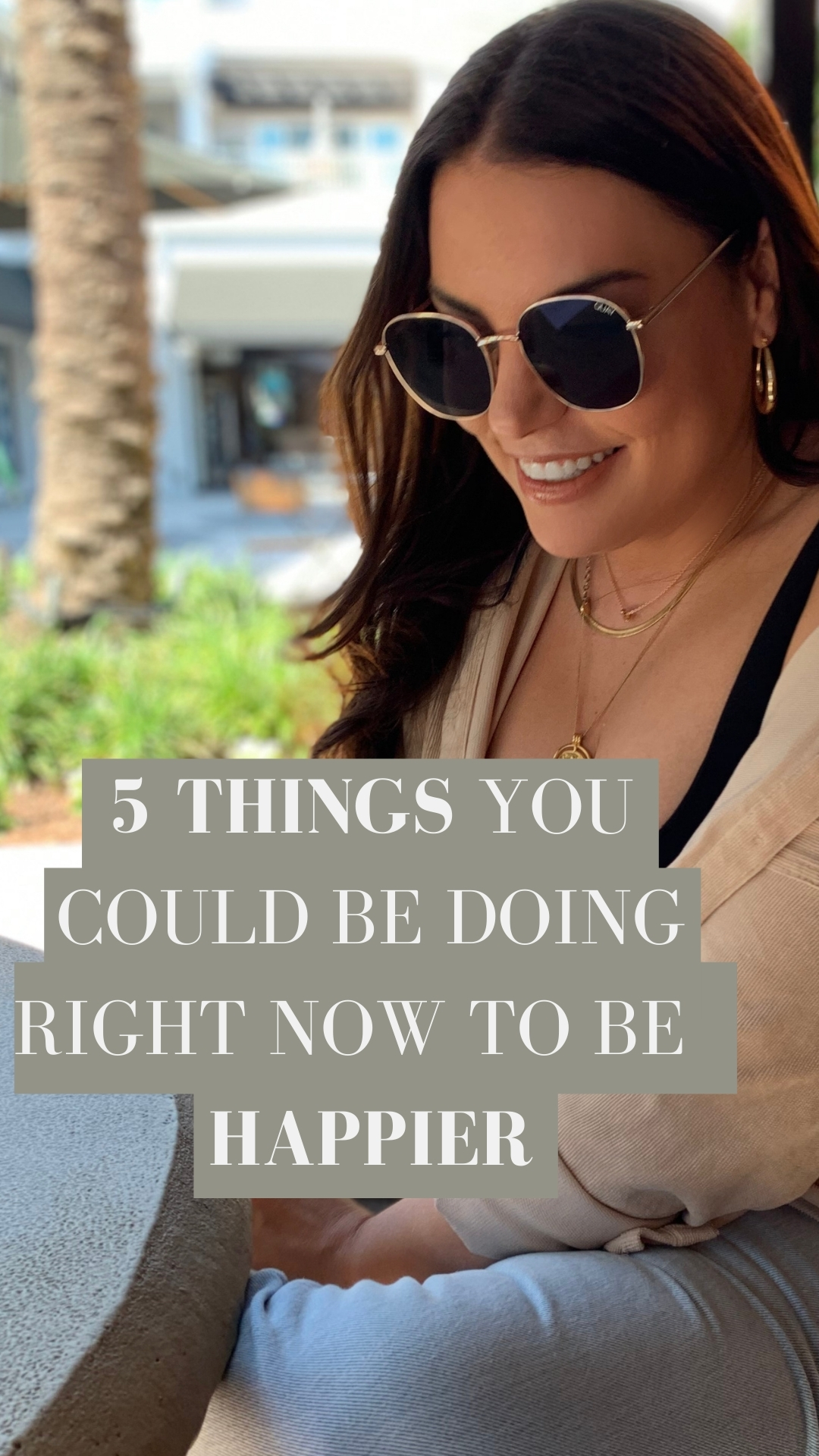1. Take your phone out of your bedroom. While most of us use our phone as an alarm clock, we forget that it’s mostly still a smartphone. Yes, it has an alarm clock feature, but it’s still the gadget holding e-mails, unopened texts and red bubbles screaming for us to clear them. All of which are things that can easily trigger anxiety. Your room should be your zen space, where connection to the chaos of the outside world isn’t one unlock button away. Having a bright screen inches from your face while you’re trying to wind down for bed really throws off your circadian rhythms too. Those are the rhythms that our body follows in a 24-hour cycle. It’s how we naturally react to cues in our surroundings, such as light and dark. When it’s morning our body expects it to be light out and when it’s time to sleep our body expects it to be dark. These signs signal to our body to do its natural thing i.e. sleep or wake up. Our internal settings don’t expect us to be shining a bright light, which signals daytime, into our eyes at 11pm. It only makes sense that if you do this you may have trouble going to sleep or falling back asleep after checking your phone. There have been studies done about what happens when you remove your smartphone from your room too, and spoiler alert, the outcome noted all positive changes.
After just one week of not having a phone in their bedroom, here are what participants of one study reported:
- Increased happiness and better quality of life
- Better quality sleep
- Less wasting time and more focus on other things
- Improved well-being
- Reduced anxiety
- Improved relationships
Find a place in the kitchen or living room to charge your phone, order an alarm clock and thank yourself for taking one step in the direction of becoming happier.
2. Go for a walk during the day. Nature is healing and your body craves being outside. Activity and sun exposure can do wonders for both your mental and physical health. Our bodies weren’t meant to be cooped up inside all day, but unfortunately that is the state of our society. Our bodies were designed to be outside, moving and absorbing things like sunlight and fresh air. We rely on the sun along with foods to help manufacture Vitamin D, which is directly linked to being happier. So, it makes sense why we feel like crap when we haven’t been getting outside. Vitamin D deficiency (mainly caused by lack of sun exposure) has been linked to a slew of health related issues including obesity, liver and kidney disease. So, imagine what being inside all day, day-in-and-day-out, is doing for our overall well-being and happiness. We have to get outside. Vitamin D has a ton of benefits too, such as fighting inflammation, aiding in weight loss and battling depression. It has even been connected to helping adults live longer. Going for a walk once a day, even if it’s for only five minutes, can make all the difference in your happiness.
3. Meditate for at least 10 minutes a day. This practice isn’t reserved for men in orange robes and people who smell like patchouli. This is a practice we should all be doing and could be benefiting from daily. Somewhere down the line meditation got a stereotype, but I’m telling you to push all that crap to the side and get ready for meditation to transform your life. The scholarly articles linking meditation to happiness are vast for a reason. Meditation is *the shit*. It is the strongest mental practice you can do. It helps you turn inwards in order to observe your thoughts and feelings without any judgement. Meditation also has the ability to reset your happiness point via rewiring areas in your brain. That’s right, you have the power to rewire your brain and make it happier. Don’t just take my word for it. Meditation makes you happier, it’s science.
Start where you’re at with meditation. Don’t beat yourself up if you have a hard time focusing, just gently try to bring your awareness back to breathing and being present. Practicing daily will really help it to become easier and more enjoyable. Be gentle with yourself and observe what you’re feeling, trying not to dismiss things that may come up without acknowledging them first.
Here are some free guided meditations to help you start:
- 10-minute Morning Meditation
- 10- minute Meditation for Anxiety
- 5-minute Manifesting Meditation w/Gabby Bernstein
- 10-minute Energy Cleanse Meditation
- 10-minute Meditation for Sleep
4. Drink lemon water daily. While lemon itself isn’t directly linked to happiness per se, having a daily healthy ritual is. Think of making yourself a cup of hot water (or whatever temperature you prefer) with 1/4 lemon every morning or night as a self-care ritual. Keeping this daily ritual/habit/promise to yourself will act as a reminder that you’re important and that you’re able to consistently do something for yourself and your health once you’ve committed to it. Lemons come with a laundry list of health benefits too, including improving your skin, detoxing your system and boosting your immune system. While sucking on a lemon won’t lead you to instant euphoria, the overall effects from the lemon can lead you to become happier. Also, let’s face it, who isn’t happier when their skin looks great?
5. Limit screen-time. You knew this one was coming. If you already think you’re spending too much time on your phone, then you are. It’s a hard truth that I, myself, had to face and address. Between work and scrolling at home, the average U.S. adult spends 19 hours a day on their phone. You read that right. 19 hours. We are living our life, our one precious life, staring at pixels. That’s a lot of time we could instead be doing things that make us truly happy.
Here are some tips that helped me reduce the time I spent on my phone. Mind you, this has been a work in progress over the last year:
- Don’t pick up your phone or look at it in the morning until after you are fully ready.
- Set a time and place to scroll on your phone. Mine is on the couch in the evening. That’s it. Not on the toilet, not while walking the dog, not while I should be working. Only on the couch at night, unless using it for work.
- Set the screen-time timer on your phone. Yes, there is one. You probably turned it off. Turn it back on. To start, try setting the timer for less than 2 hours a day, since that’s the recommended amount you should spend on a screen outside of work. You can then select which apps will be included in the time allotted. You can exclude any apps you may need to access frequently, such as your app for emails, if you so choose.
- Start using your computer more, if you have one. I keep my laptop in my living room, so when I want to plan a vacation or check e-mails, I don’t have to be staring at my phone. This also eliminates any temptation to mindlessly open an app.
And because I really want to hammer this point home…here are just some of the negative affects screen-time can have on us. Keep in mind, smartphones have only been around for less than 20 years, so we truly won’t know all the affects for years to come.
- Depression
- Insomnia or poor sleep, as listed in #1
- Addictive behaviors
- Eye strain and headaches
- Changes in your cognitive performance
- Reduced physical activity levels (source)
This list doesn’t even mention the quality time we’re missing with our loved ones. Reframe how you look at giving up your phone. Instead of thinking of what you’ll be missing, think of what you’ll be gaining. One of those things: happiness.
Jun 29, 2021
5 Free Things You Could Be Doing Right Now To Be Happier


